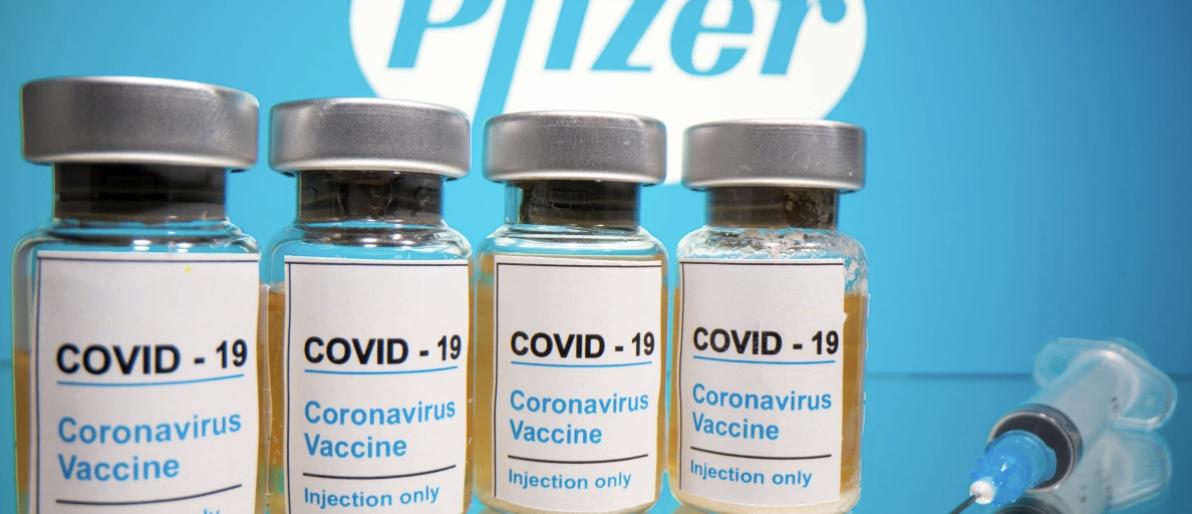A whopping 89% of WIS faculty have received at least the first dose of the COVID-19 vaccine as of March 22, according to Director of Marketing and Communications Kimberly Bennett. The school reached this impressive figure less than two months into the vaccination process.
On February 1, students were given a half day after D.C. independent school teachers became eligible to sign up at noon for a COVID-19 vaccine appointment. The process, which was arranged by the D.C. government, took place through a primary care company called One Medical.
However, the vaccination sign-ups did not go as smoothly as the WIS administration had hoped. According to Upper School English Teacher Karin Tooze, no appointments appeared on the website at noon. Many individuals across the country have experienced the same issue throughout the vaccine rollout process.
Once the appointments became available several hours later on the One Medical website, many teachers were unable to book them immediately. “You’d look for an open appointment and click on it and hope that nobody else had beat you to it. [And] there was no guarantee if one appeared that you would actually get it,” Upper School Physics Teacher Bill Canham said.
The wording on the sign-up website confused some teachers, causing them to lose their chance to schedule an appointment. Upper School Math Teacher Neil MacDonald described opening up the site and seeing that “all the appointments were available, but I didn’t realize they were only going to be in one [vaccination site]. So I thought, ‘oh, I’ll come back when they open them up in the [vaccination site near me],’ and they were all gone.”
Out of the three teachers, only Tooze was able to sign up for an appointment on February 1. Tooze received her first dose on February 5 and her second dose on February 26.
Over the next week and a half, MacDonald and Canham kept checking the One Medical site at 9 a.m. and noon, the times that appointments were scheduled to drop, until they successfully booked a slot. Both of them received their first dose on February 12 and their second dose on March 5.
All three teachers received the Pfizer vaccine.
After receiving the vaccine, different teachers had a wide range of immunological reactions, with some feeling completely normal and others experiencing severe flu-like symptoms.
Canham was one of the teachers who was unaffected by the vaccine. After getting his second dose, which usually has stronger side effects than the first, his “daughter hit [him] on the arm, and [he] barely felt it.”
Tooze had nothing more than a sore arm after her first shot. However, after receiving her second dose, she had “a fever, fatigue, and just felt like I was getting the flu. [I felt] body aches, [wanted] to sleep, etc. It was a delayed onset for about 12 hours [and] then it only lasted for 12 hours.”
MacDonald also experienced strong side effects after his second shot. “I was not well for three or four days — I was just flat out [on] Saturday and Sunday. I came to school on Monday and I made it through, but I had to go home on Tuesday… It wasn’t really bad. I just wasn’t functional,” he said.
Assistant Principal for Grades 9 and 10 Allison Ewing received the first dose of the Pfizer vaccine on January 22 and the second dose on February 12. Ewing lives in Maryland, which is on a different vaccination schedule from D.C., which is why she got her first shot prior to February 1.
Although she is grateful to have received the vaccine, she feels that the struggle to obtain an appointment “sheds even more light on the inequity we have in our country.”
Ewing pointed out several examples of obstacles that people have encountered during the sign-up process. “For the first couple weeks of the vaccine rollout, there wasn’t really a good telephone number that you could call. So if you’re 85 and you don’t know how to use the internet, it’s really hard to get the vaccine. Or if you don’t speak English, [since] a lot of the vaccine registration sites are predominantly in English,” she said.
Ewing hopes that these difficulties will be addressed by individual states’ governments. “It doesn’t have to be anything huge or gigantic that changes the system — it’s just little things [that] make a huge difference.”
“There’s this saying: you increase access and inclusion and equity when you think about the people who have the least,” Ewing said. “And whatever you do for them, it’s going to be better for everyone else.”
By Maia Nehme
































































